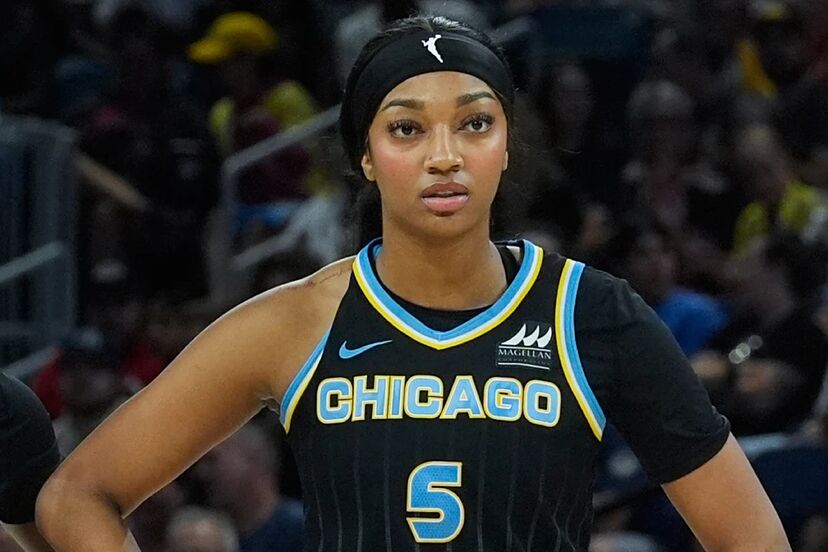ESPN’s Monica McNutt Faces Backlash for Comments About Caitlin Clark
The WNBA is experiencing unprecedented popularity in its 28th season, setting new records in viewership, attendance, and merchandise sales. Central to this surge is Fever guard Caitlin Clark, whose talent and charisma have made her one of the most influential athletes in modern women’s sports.
Yet not everyone has celebrated Clark’s rise. Some commentators and media personalities have attempted to frame her success in racial terms, leading to controversy and heated debates online.

McNutt’s Controversial Remarks
ESPN analyst Monica McNutt sparked outrage with a comment suggesting that little girls support Caitlin Clark because she is white. When asked by BBC reporter Katty Kay why Clark has become so popular, McNutt responded:
“Caitlin represented, and again, some of this to me probably is not fair to her, because it was not anything that she said or was truly based on her personality, but she was a white girl from the middle of America. And so she represented a whole lot to a lot of people, whether that is truly what she prescribed to or not.”
In essence, McNutt implied that Clark’s popularity among young fans is driven by race rather than talent, character, or athletic achievement.
Public Reaction and Criticism

The comments were met with swift backlash. Many argued that McNutt’s assertion diminishes Clark’s accomplishments and overlooks the qualities that have earned her genuine admiration: skill, dedication, and charisma. Fans pointed out that rooting for an athlete is rarely a matter of race, particularly among children, who are drawn to performance, style, and inspiration.
Social media erupted with support for Clark, highlighting her impact on the WNBA and young athletes across the country. Hashtags praising Clark’s talent and leadership circulated widely, while McNutt’s remarks were criticized as unfounded and divisive.
Misunderstanding Clark’s Appeal

Clark’s popularity is easy to explain without invoking race. Her combination of elite skill, a compelling personal story, and a magnetic presence on the court mirrors the appeal of athletes like LeBron James, Patrick Mahomes, Steph Curry, Serena Williams, and Simone Biles. Fans are attracted to excellence, determination, and the pursuit of historic achievements, not skin color.
Clark’s on-court achievements — including her chase for the NCAA Division I all-time scoring title — demonstrate her exceptional ability and competitive drive. For many, she represents a role model in sportsmanship and commitment.
The Broader Media Context
Critics have noted that McNutt’s comments reflect a larger issue in modern sports media: the rush to frame athletes’ success in terms of race rather than merit. Veteran journalist Michael Wilbon recently spoke about accountability in sports journalism, emphasizing the importance of truth and fairness in reporting.
According to Wilbon, there is a lack of oversight in today’s media, which allows commentators to make unsubstantiated claims without facing meaningful consequences. McNutt’s remarks serve as an example of how personal bias or attempts to appeal to social media audiences can overshadow objective analysis.
The Impact on Fans and the WNBA
For parents of young fans, McNutt’s comments were particularly troubling. Children who admire Clark do so because of her talent, determination, and leadership. Suggesting otherwise can alienate fans and diminish the joy of following the sport.
Clark’s rise has not only revitalized the WNBA but has inspired a generation of young athletes to pursue basketball and sports in general. Her influence extends beyond wins and statistics — it’s about visibility, representation, and excellence in women’s sports.
Conclusion

Caitlin Clark’s success in the WNBA is a testament to her extraordinary talent, work ethic, and presence both on and off the court. Attempts to reduce her achievements to matters of race, as seen in Monica McNutt’s comments, fail to recognize the real reasons fans gravitate toward her: skill, charisma, and an undeniable competitive spirit.
As the WNBA continues to grow, Clark’s impact will be remembered for how she elevated the league and inspired future generations — not for the baseless claims of a media commentator. The story is ultimately one of admiration, not controversy, and Clark’s legacy continues to grow stronger with each game.





